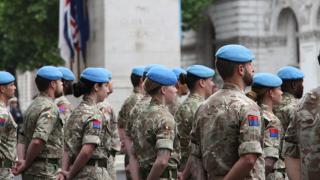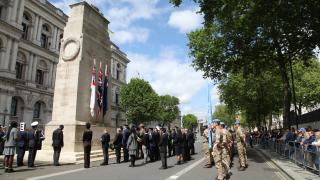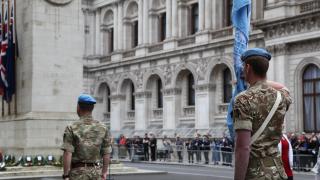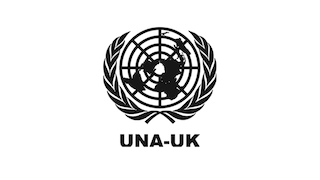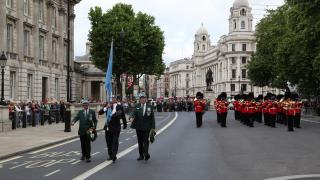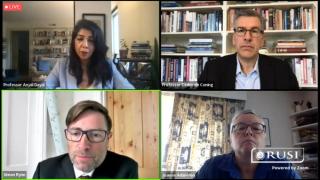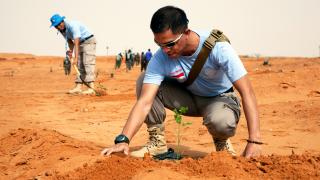
Lord Wood of Anfield, Chair, United Nations Association - UK
The UN’s peacekeeping mission to Darfur, UNAMID, will have its mandate renewed in June. With the United States wishing to cut over a billion dollars from the UN’s peacekeeping budget, as well as wanting to revitalise relations with Sudan by removing 20-year-old sanctions, it appears drastic cuts to the mission may be on the horizon. A strategic review of the mission has suggested cutting troop numbers by 44%.
The western Sudanese region of Darfur has been beset by conflict and civil war for many decades. This low intensity fighting came to a head in 2003 when Government-backed “Janjaweed” militias attacked rebel groups and civilians in the region. Sudan’s President Omar Al Bashir was subsequently charged by the International Criminal Court for crimes against humanity, genocide, and war crimes as a result of his actions in Darfur at that time.
UNAMID was born in 2007 as a by-product of a UN-backed peace process which has restricted – but not completely ended – the armed conflict. It is a joint mission between the UN and African Union. It has not been an unmitigated success; human rights violations remain commonplace. Meanwhile, the Sudanese government has continued to resist reform, and with the amount of pressure the international community is willing to bring to bear on the government reducing, the political process in Darfur risks stalling. The host government has constantly frustrated the proper functioning of the mission.
What now?
It would be disingenuous to suggest that there are not savings that could be found. UNAMID deploys nearly 20,000 personnel and has a budget of over a billion dollars. It is comfortably the UN’s second largest mission. Furthermore, it is understandable that the UN consider an exit strategy for a mission which has now continued for over 10 years.
However, it would be premature to suggest that the relative reduction in violence means that a significant reduction in troop numbers would be free from risk. The recent renewed fighting between government forces and rebel groups in the east and north of the region shows that the improved security situation is precarious. Furthermore, one of the main shortcomings of UNAMID has been its failure to effectively monitor, report, and dissuade local-level human rights violations. A reduction in troop numbers, if not accompanied by a comprehensive strategy for human rights monitoring and reporting, and supporting policing and the rule of law, would only exacerbate this problem.
As a new report by the European Council on Foreign Relations argues, any reduction in peacekeeping by the UN needs to be accompanied by an increase in the efficacy of the African Union’s engagement and an investment in “post peacekeeping” scenario planning, civilian training and humanitarian support. The UN Country Team has indicated that it does not have the resources available to run such programmes given a UNAMID drawdown, unless there was to be a change of heart among donors. As such, European powers have an opportunity to play a leading role in this process.
Key questions
As the UN Security Council meets to consider the future shape of the mission it is important that they consider two key questions:
- How will the protection and human rights of the Darfuris continue to be safeguarded and monitored? And with the possibility of sanctions on the Sudanese Government being lifted what are the levers of influence that the international community can bring to play in Khartoum if the situation worsens?
- What is the contingency plan if violence were to flare up again - not just a significant possibility, but a particular problem given that, in those circumstances, the Sudanese Government would be highly unlikely to grant any additional access?
Above all, we urge the Security Council to listen to the wishes and security concerns of Darfuris themselves. It is they who will bear the brunt of the decisions that are made in New York, yet too often they are left voiceless in the Security Council process. A strategic review team did spend twelve days in Sudan in March, which included visits to Darfur and meetings with civil society, but more can be done to involve the people of Darfur in discussions on their future.
Over the next two weeks we will be working with Waging Peace, a UK human rights organisation campaigning against genocide and systematic human rights violations in Sudan, to take the words of Darfuris and place them in front of Security Council representatives. But diplomats should not need UK-based NGOs to encourage them to go and speak to those who will be directly affected by the decisions they make, it should always be their first response.
Photo: UNAMID Staff Plant Trees on World Environment Day UN Photo/Albert González Farran

